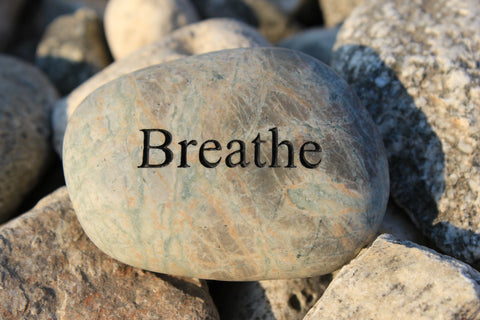A breath awareness practice is a type of mindfulness meditation that involves focusing one's attention on the physical sensation of breathing. The practice involves observing the natural rhythm and flow of the breath, without trying to control or manipulate it in any way.
To Begin
To begin a breath awareness practice, find a quiet and comfortable place where you can sit or lie down. Close your eyes and bring your attention to your breath. Notice the sensation of the air moving in and out of your nostrils or the rise and fall of your chest and belly.
Notice Your Breath
As you focus on your breath, you may notice that your mind begins to wander. When this happens, gently bring your attention back to your breath without judging yourself for getting distracted. Simply observe the sensation of breathing and let your thoughts come and go without getting caught up in them.
Regular Practice
You can practice breath awareness for a few minutes or as long as you like, but it's recommended to start with shorter sessions and gradually increase the duration over time.
Breath Awareness and Diaphragmatic Breathing
In addition to breath awareness, one common breathing technique is called "diaphragmatic breathing" or "belly breathing." This technique involves taking slow, deep breaths from the diaphragm, allowing the belly to expand with each inhalation and contract with each exhalation. Read more about its benefits.
- Reduces stress and anxiety: Diaphragmatic breathing has been shown to reduce the levels of stress hormones in the body, such as cortisol and adrenaline, which can help to reduce feelings of anxiety and promote relaxation. When we experience anxiety, our body's stress response is activated, leading to symptoms such as rapid breathing, increased heart rate, and tension in the muscles. By practicing breathing exercises, we can help to calm the body's stress response and promote a sense of relaxation.
- Improves lung function: Diaphragmatic breathing can help to improve lung function by increasing the amount of oxygen that is taken in with each breath. This can be particularly beneficial for individuals with respiratory conditions, such as asthma or chronic obstructive pulmonary disease (COPD).
- Lowers blood pressure: Diaphragmatic breathing has been shown to help lower blood pressure, which can reduce the risk of heart disease and other cardiovascular conditions.
- Improves digestion: By stimulating the vagus nerve, diaphragmatic breathing can help to improve digestion and relieve symptoms of gastrointestinal distress, such as bloating and constipation.
- Boosts immune system: Diaphragmatic breathing can help to boost the immune system by increasing the production of immune cells, such as T-cells and natural killer cells.
- Improves sleep: Diaphragmatic breathing can help to promote relaxation and reduce feelings of stress and anxiety, which can make it easier to fall asleep and improve the quality of sleep.



